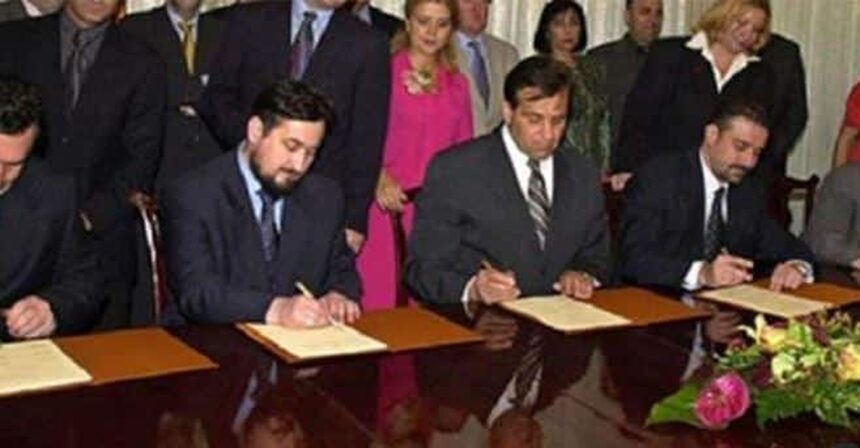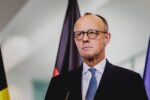The Ohrid Framework Agreement, signed 24 years ago, was an Albanian–Macedonian accord establishing new socio-political relations and furthering the state-building process of North Macedonia.
This settlement between the two peoples became possible after the armed conflict of 2001. It was reached with the assistance of the international community, which played a decisive role in finding a political solution to the interethnic crisis in North Macedonia.
The role of the international community in halting the conflict and securing a political agreement was indispensable. During the fighting in the former FYROM, the European Union and the United States dispatched their representatives — François Léotard and James Pardew — as mediators for peace.
After strenuous negotiations with the opposing parties, they prepared what became known as the “Draft Framework Document,” which, on 7 July 2001, they presented to the four leaders participating in the government of the former Yugoslav Republic of Macedonia and to President Boris Trajkovski.
The conclusion of the Albanian–Macedonian talks was the Ohrid Framework Agreement. Yet, just as the Ohrid negotiations were nearing their end, certain nationalist circles in Macedonia — both governmental and non-governmental — began making reckless statements, provoking strong reactions from international representatives.
These statements sought to undermine the political process and the agreement drafted by international experts. However, the international decision-making centers made it clear to the Macedonian side that: “There is no better alternative than agreeing to and signing this document.”
The Albanian–Macedonian negotiations in Ohrid lasted around ten days and concluded on 13 August 2001. Under international pressure, the Albanian–Macedonian conflict was brought to an end with the signing of the Ohrid Framework Agreement.
The agreement consists of ten key points:
- Fundamental Principles
- Cessation of Hostilities
- Development of Decentralized Government
- Non-discrimination and Equitable Representation
- Special Parliamentary Procedures
- Education and Use of Languages
- Expression of Identity
- Implementation
- Annexes
- Final Provisions







